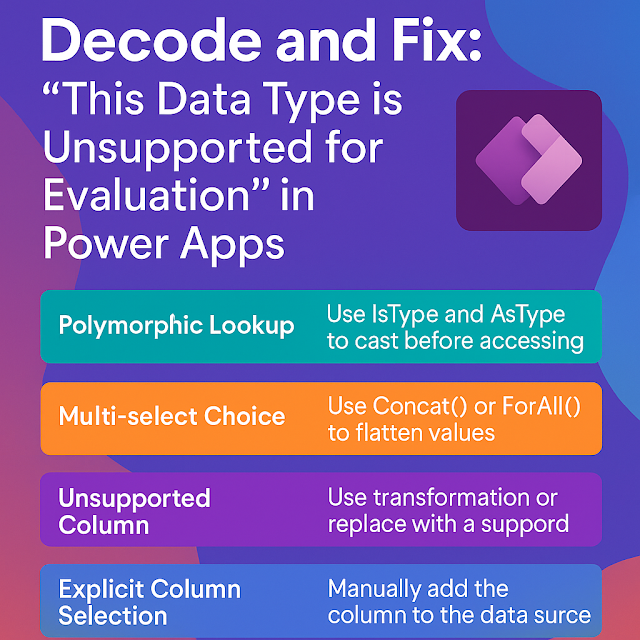Dynamics 365 Field Service : Configure characteristics and proficiency models
In Dynamics 365 Field Service, characteristics and proficiency models play a crucial role in optimizing resource allocation, improving service quality, and enhancing customer satisfaction. Here’s why they are important:
Why Are They Important?
1. Intelligent Resource Matching
Field Service uses these attributes to automatically match the right technician to a work order based on required skills and proficiency levels. This ensures the job is assigned to someone qualified, improving first-time fix rates.
2. Optimized Scheduling
With Resource Scheduling Optimization (RSO), proficiency levels can influence which technician is chosen based on both skill and availability, helping to balance workload and service quality.
3. Better Decision-Making
Dispatchers and service managers can make informed decisions when assigning work, especially for complex jobs requiring specialized skills.
4. Training and Upskilling
Proficiency models help identify skill gaps across your team. This insight supports targeted training plans and professional development.
5. Enhanced Customer Satisfaction
By assigning the most suitable technician, organizations reduce rework and delays, resulting in faster resolutions and happier customers.
What are Characteristics in Field Service?
Characteristics in Dynamics 365 Field Service are attributes or skills assigned to a resource (e.g., technician, engineer). These could include:
- Technical skills (e.g., Electrical Repair, HVAC, Plumbing)
- Soft skills (e.g., Customer Service, Communication)
- Certifications (e.g., OSHA Certified, Safety Training)
- Language abilities (e.g., Spanish-speaking)
- Geographic familiarity (e.g., Region-specific expertise)
You can create and manage these in the Characteristics entity within the system.
Why Use Characteristics?
They help define what a resource is good at, so the scheduling engine (or dispatcher) can find the best-suited person for a work order that requires specific competencies.
What is a Proficiency Model?
The Proficiency Model defines the level of expertise a technician has for each characteristic. It’s a rating system, usually with a scale from 1 to 5, where:
- 1 = Beginner
- 2 = Basic knowledge
- 3 = Intermediate
- 4 = Advanced
- 5 = Expert
This rating is applied when assigning a characteristic to a resource, enabling the system to understand not just whether someone has a skill, but how proficient they are at it.
Summary:
In Microsoft Dynamics 365 Field Service, Characteristics and Proficiency Models are part of the resource management and scheduling system. They play a crucial role in matching the right technician to the right job at the right time — based not just on availability, but on skills, expertise level, and suitability for the task.













Comments
Post a Comment